What is Mass?
Mass is a measure of the amount of matter in an object. It is different from weight, which is the force of gravity acting on an object. Mass is typically measured in units such as grams (g) or kilograms (kg).
How is Mass Measured?
Mass can be measured using a balance scale or electronic scale. A balance scale compares the mass of an object with known masses on the other side of the scale. An electronic scale provides a direct measurement of the mass of an object.
Units of Mass
The basic unit of mass in the metric system is the gram (g). Larger masses are often measured in kilograms (kg), where 1 kilogram is equal to 1000 grams. In the imperial system, mass is often measured in ounces, pounds, and tons.
Comparing Mass
Objects with greater mass have more matter in them and are typically heavier than objects with less mass. When comparing the mass of two objects, you can use a balance scale to determine which one is heavier.
Importance of Mass
Understanding mass is important in many real-world applications. For example, in science and engineering, knowing the mass of materials is crucial for building structures, designing vehicles, and conducting experiments.
[Mass] Related Worksheets and Study Guides:
.◂Math Worksheets and Study Guides Third Grade. Word Problems
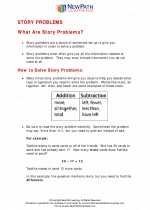
 Activity Lesson
Activity Lesson
 Activity Lesson
Activity Lesson
 Activity Lesson
Activity Lesson
 Worksheet/Answer key
Worksheet/Answer key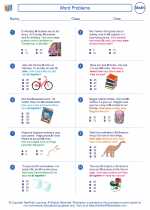
 Worksheet/Answer key
Worksheet/Answer key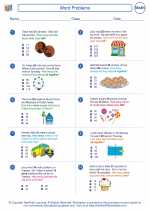
 Worksheet/Answer key
Worksheet/Answer key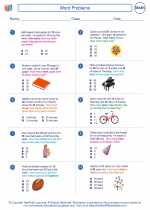
 Worksheet/Answer key
Worksheet/Answer key
 Worksheet/Answer key
Worksheet/Answer key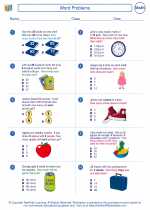
 Worksheet/Answer key
Worksheet/Answer key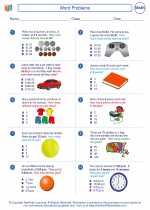
 Worksheet/Answer key
Worksheet/Answer key
 Worksheet/Answer key
Worksheet/Answer key
 Worksheet/Answer key
Worksheet/Answer key
 Worksheet/Answer key
Worksheet/Answer key
 Worksheet/Answer key
Worksheet/Answer key
 Worksheet/Answer key
Worksheet/Answer key
 Worksheet/Answer key
Worksheet/Answer key
 Worksheet/Answer key
Worksheet/Answer key
 Worksheet/Answer key
Worksheet/Answer key
